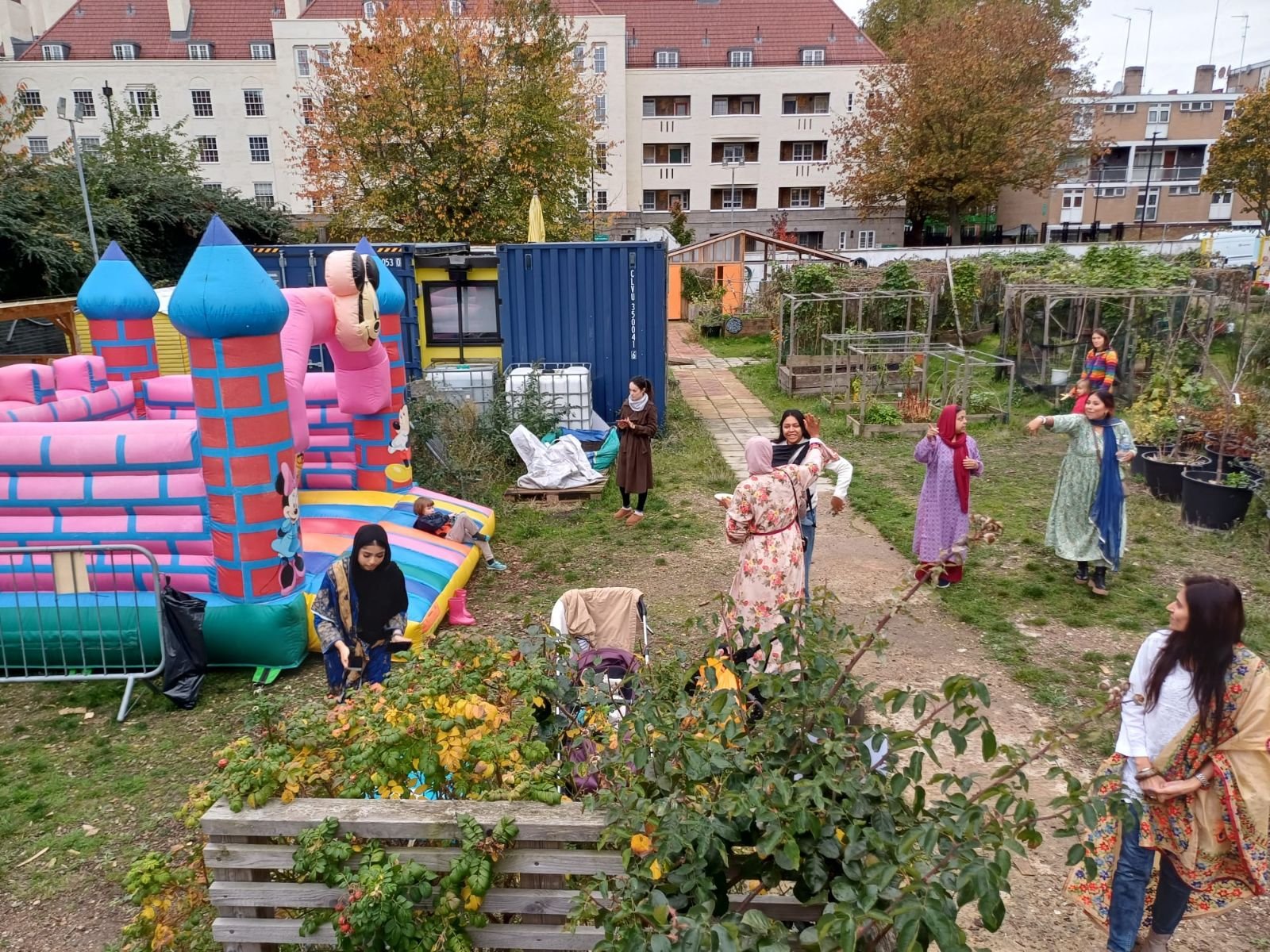MY EXPERIENCE AS A CLIMATE AND FOOD AMBASSADOR
We hear the words ‘climate change’ in the news and it often washes over our heads. For a lot of people, it’s something so distant from our everyday realities that even if you want to help you might not even know where or how to start.
Being a Climate and Food Ambassador has shown me how to make small changes in my thinking that will absolutely have a bigger impact on my life and the way that I think about and consume food or even manage what I considered to be waste.
Something that might seem small, was learning how to grow vegetables from scraps of the veg that we would normally throw away. I’ve always been interested in gardening and growing, and I think that seeing it being done by Silvia really made it clear how easy and inexpensive it is. I’m currently growing beetroot which we use a lot of and have previously just thrown away and I’m excited to watch it root and get lots of little beetroot to use. You don’t need a lot of space and all you have to do is put the leafy bit that grows above ground in some water and wait for it to grow roots!
One thing that crossed my mind when thinking about using food waste in this way was that from just one vegetable you can grow infinitely. At first it might seem like an insignificant bit of knowledge to have in the context of how easy it is to go to the shop and buy something, but can you imagine the satisfaction of growing your own vegetables, reducing the impact of climate change in your own small way all while also saving some money.
There is so little that we know about where our fruit and veg comes from and how it gets here. Something that surprised me in one of our sessions was discovering the production cycle of bananas! There are a lot of things that you take for granted when you can buy a bunch of bananas so easily from the shop, same goes for any fruit. Understanding where bananas came from and their journey to our homes was important as I realised how detached I have been from how things like apples, bananas, oranges and so on make their way into our homes. Being a Food and Climate Ambassador has made me more conscious when it comes to choosing what I buy, and thinking about where it came from, how long it took to get here, and how it might have got here.
More than anything, being a Climate and Food Ambassador has been invaluable because of the group experience. Even if we don’t know it, each and every one of us as taken away a bit of knowledge. Coming together after being in lockdown was a great experience, I’ve learnt to appreciate the freedom of being outside more (did anyone else notice how fresh the air was when we all just stopped for a little bit?) and being able to socialise. I have had the best time learning new skills and how there are others in my community that want to impact climate change in their own way.
This experience hasn’t been about learning information to simply regurgitate, it’s been about the community and putting practical skills – some that I didn’t know I had – to use. Building planters in the Story Garden with other Ambassadors on the programme was a way for us to bond. The amount of effort that everyone put in was incredible and everyone was always willing to help. I know that as I continue as an ambassador, I’ll carry on picking up new skills and finding new ways to change some of my own wasteful habits.
My ending thought is that the conversation about food waste and climate change is centred around how terrible of an effect our consumption is having on this earth and that is right, but I do believe that the earth is big and abundant enough for everybody in it; we often treat it like it is not, our habits as humans are not sustainable although the earth has the capacity to serve and feed everybody on it. Community seems to me to be an outstanding factor in changing how aware we are of our consumption, our usage and our waste. It only takes a small bit of information to impact the way somebody does things in the long run and if I can learn it, I can also pass it on.












Meet our second cohort of earth build trainees! Their focus has been on all things wood, including green woodworking and the timber construction of the kitchen. They have learned on the job, while working on our sustainable natural build construction project to create our first permanent community garden, at the #TriangleSite.